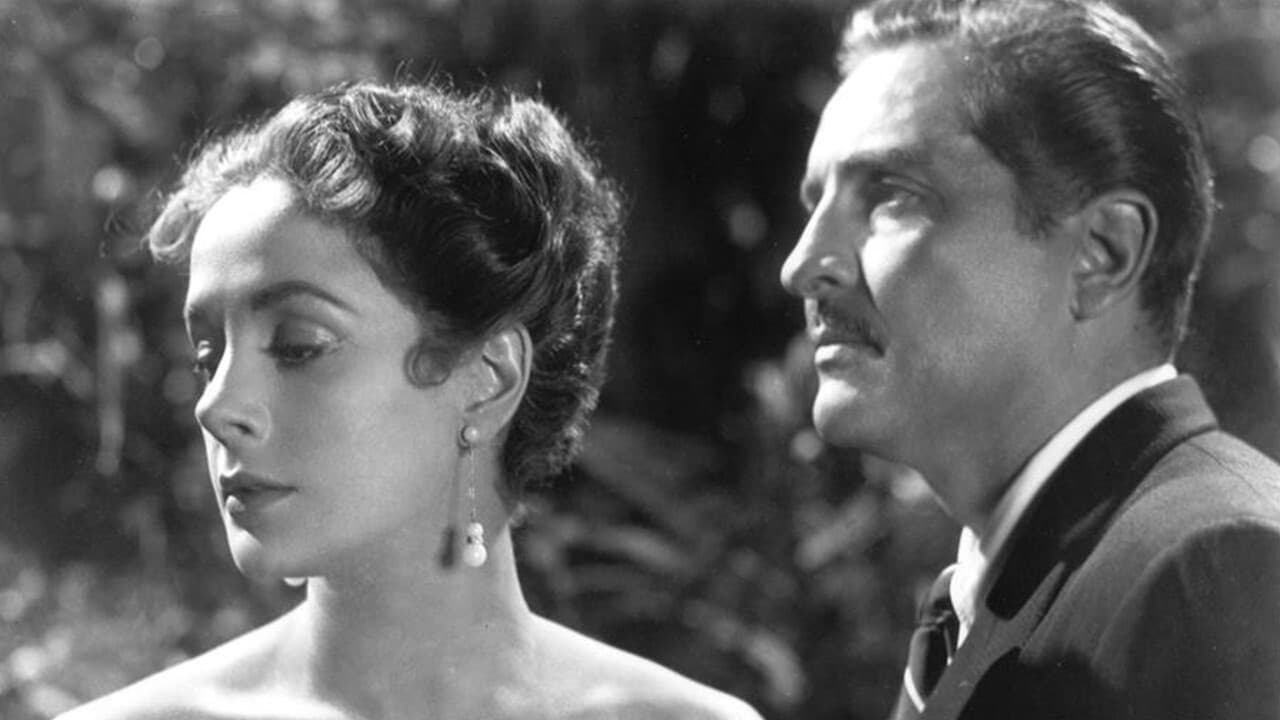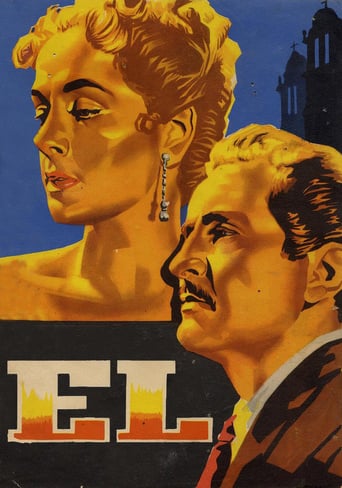

This Movie Can Only Be Described With One Word.
... View MoreBest movie ever!
... View MoreGreat story, amazing characters, superb action, enthralling cinematography. Yes, this is something I am glad I spent money on.
... View MoreStrong acting helps the film overcome an uncertain premise and create characters that hold our attention absolutely.
... View MoreI've wanted to see this film for years but have missed it several times in the past. This time I picked it up on You Tube of all places so now I've seen all of Bunuel's "Mexican" films. I suppose I was hoping for more. Some of the earliest Mexican films were pretty standard fare - not much to be detected from "L'Age d'Or" or anything like that. Bunuel had to cooperate with the standard melodramas of the day to get his films made in Mexico. Occasionally his special eccentricities would come out of the woodwork but not often enough for me. This film was released by Columbia Pictures which means Harry Cohn and Cohn was truly a monster for any director to work with. There are some pot shots at the church throughout and "l'amour fou" so close to the director but there was precious little humor in this one.I felt the film didn't always know where to go. It describes obsession in detail and conveys it extremely well with talented performances. The "Vertigo" stretch was a bit much for me. Both films dealt with obsessive men and had scenes in bell towers but there couldn't be any mistaking Bunuel for Hitchcock or the other way around, nor how the two directors treated it in such vastly different ways.Curtis Stotlar.
... View MoreIn Mexico, the wealthy, religious and leery middle-aged Francisco Galván (Arturo de Córdova) is battling in the justice to retrieve the possession of real-estates that belonged to his ancestors in the beginning of the Twentieth Century. When he sees the young Gloria Milalta (Delia Garcés) in the church, he becomes obsessed by the woman, unsuccessfully courting and stalking her. He follows her and sees Gloria with her fiancé and his acquaintance, the engineer Raul Conde, having lunch in a restaurant. Francisco schedules a ball in his mansion and invites Raul and along the night, he seduces Gloria. They get married and in the honeymoon, Gloria discovers that Francisco is virgin and has a sick jealousy for her. Along the years, the emotionally unbalanced Francisco oscillates between a passionate husband and a disturbed paranoid until the day Gloria leaves him and he has a mental breakdown. "El" is a very simple and melodramatic film of Luis Buñuel about sick jealousy and paranoia. The plot shows the usual trademark of this great director, with religious element and the surrealistic paranoia of the lead character in the church, but is not original like most of his features. Arturo de Córdova and Delia Garcés have stunning performances, giving credibility to their characters. My vote is eight.Title (Brazil): "O Alucinado" ("The Hallucinated One")
... View MoreWe are taken to the Holy Thursday rite in which Roman Catholic priests wash the feet of a few young men to show humility. In the case of Father Velasco, a Mexican prelate, his interaction with the young men has more of a sexual feeling than anything else. Looking to the rite is Francisco, a rich man who watches the scene, but keeps glancing until he meets the beautiful Gloria in a pew with her mother. There is also a clear feeling of class values as the shoes of the people around the washing ritual have shining, if not new, shoes, in contrast with the humble young men's bare feet.Francisco is a complex man suffering from paranoia. After he wins Gloria, who had been engaged to a wealthy man, he marries her. For all practical purposes, it's a marriage made in heaven. Things begin to deteriorate between the newlyweds as they take the train that will bring them to Guanajuato, for their honeymoon. Francisco begins accusing Gloria of flirting with some of the men she meets, something that is absurd.The story follows Francisco's descent into a madness caused by his own inability to cope with the facts. His marriage is ruined because Gloria can't put up with his irrational accusations. In a change of pace, a miracle happens at the end in which we meet Francisco again in a strange land under a new persona. Finally, it seems, he has found peace within himself, not without destroying what he loved the most.Luis Bunuel's Mexican years produced a string of movies that are now classics because of his vision. The director had a deep resentment of the Catholic Church, as he saw it. In his pictures Mr. Bunuel made clear, as he did here, to show how the institution was hypocritical in the way Father Velasco almost looks as though he is playing a sexual act with the young men he is supposed to be washing their feet. Yet, in the end, Mr. Bunuel switches gears in presenting a serene setting in which a repenting Francisco is seen.There is one amazing sequence when Francisco takes Gloria to the bell tower of a church. The deafening sound of the bells drive Gloria to the point of insanity. She realizes Francisco is mad. One wonders if Alfred Hitchcock might have found inspiration for a variation of his own take for the famous scene in "Vertigo".Arturo De Cordoba gave an impressive performance as Francisco, the man driven by his jealousy and madness because of his paranoia. Delia Garces, the exquisite Argentine actress is impressive as Gloria. The director got, in general good acting from his ensemble cast. Some of the Mexican films of that period dealt with sentimental melodramas, none of which is found here.The film is worth a look because of the work of Mexico's best cameraman, Gabriel Figueroa. The city of Guanajuato, which is key to the story, is shown in all its splendor. This was a triumph for Mr. Bunuel, one of the most original directors from all times.
... View MoreMade in 1952, between "Robinson Crusoe" and "Wuthering Heights," this may not be one of Bunuel's major films, but it contains several of his key themes and recurring images, starting with the ceremonial washing and kissing of feet. The film also goes into the politics of submission and domination, the effects of long-term sexual repression, and -- of course -- sewing.Bunuel understood obsession and was able to convey it on screen like no other director. As irrational as his characters can get (and Francisco gets plenty irrational in this film), Bunuel knows that we all have our hangups which seem normal to us, no matter how grotesque they may look to an outside viewer. (There's a reason why the alternate title for this film is "This Strange Passion.")
... View More